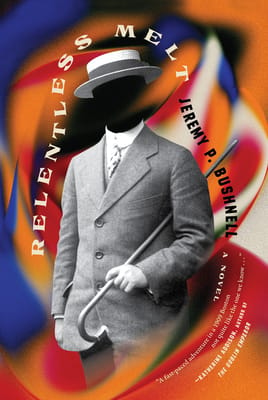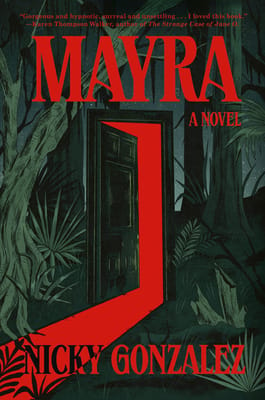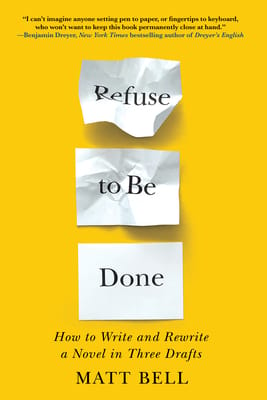- Josh's Newsletter
- Posts
- Yesterday Today Tomorrow Forever: Recommended Books July 2025
Yesterday Today Tomorrow Forever: Recommended Books July 2025

Hello Readers,
I’m just going to hype my friends this issue. Because I think it’s cool they’re my friends. Because I want you to think I’m cool because I have cool friends. Because they deserve to be hyped anyway. Because we really really really really need to start prioritizing relationships over productivity, or, really start understanding, in practical ways, that relationships are their own result. Because I want to see my friends succeed and help where I can. Because it’s my newsletter so I can do what I want.
I hope you buy a bunch of my friends’ books!
P.S. If you like what I’m doing here the best way to support it is to help grow the list of subscribers, so share the sign up link around. Thank you!
YESTERDAY
Relentless Melt by Jeremy Bushnell
Some of you have been waiting for a book like Relentless Melt for a long time, you just didn’t know it. Quirky crime and detective historical fiction set in Boston (and loosely based if I’m remembering a conversation I had with Jeremy ages ago correctly on the founding of Northeastern University), with a touch of magic, the weirdness Bushnell always weaves into his work (see what I did there?), and some loveable scamps to root for.
Artie Quick wants to study criminology and dresses up like a man to do so. Her friend Theodore is into magic in the way rich kids who want to get beyond their richness can get into things. The thing is though, if you go looking for crime, you might find it and if you go looking for the occult, well, you might find it.
I think this would hit for Victor Lavalle and Jedediah Berry fans, maybe even TJ Klune fans who want something darker every now and then.
TODAY
I Want to Burn This Place Down by Maris Kreizman
The cliche is “America is a center-left country with a democracy problem.” There are a few major reasons why many people believe America is a conservative country; from how corporate media portrays American politics, to the specific audiences both major parties target, to the you know, legit conservative currents like white supremacy. One of the ideas that comes out of that skewed perception is that people grow more conservative as they get older. Like red wine being healthy, what we see when notice that older people tend to be more conservative is actually rich people tend to live longer than poor people and tend to be conservative assholes. It’s not a political truth, it’s a prime example of survivor bias.
It’s one thing to know that, or to at least be suspicious of the claim, and it is another to read one person’s journey leftward, not because of some dramatic moment of radicalization, but through the slow growth of awareness and perspective available to anyone with a bit of curiosity and willingness to do the reading. Oh, and the relatively common chronic illness type 1 diabetes. (It is always shocking to me than anyone who has interacted with the American healthcare system can be anything but a rabid supporter of universal healthcare but propaganda is strong and culture is stronger.)
Maris is open about her privileges and biases and recognizes the problems and limitations of her past perspectives without being cruel to her younger self. She cites her sources without trying to explicate every single idea in her journey and without trying to convert anyone to a specific ideology. She is willing to laugh at herself which makes it easier to laugh with her at other things. And it brought me back to that golden era when we didn’t have to double check which Naomi said a thing.
The result is an accessible essay collection that charts a life’s growth in ways that I hope, will inspire others to reconsider their assumptions about capitalism, liberalism, healthcare, and publishing. (Oh, and Maris’s newsletter is one I pretty much always read!)
TOMORROW
Mayra by Nicky Gonzalez
I think Nicky does an incredible job creating a balance between what readers know about her protagonist Ingrid and what Ingrid knows about herself, not through some kind of dramatic irony in which something is revealed to us but not to her, but by building Ingrid’s blind spots (or blind spot really) in such a way that we can see around them even though she can’t.
It’s an even more impressive feat because Ingrid is the narrator. We are seeing the truths contained in her own thoughts and her own memories that she is incapable of seeing herself. Furthermore, there’s a way to establish this dynamic that is cruel to Ingrid, that mocks her ignorance, or creates a kind of system of punishments for her because of it. I’m not saying things go great for Ingrid (I am saying things certainly go WEIRD for Ingrid), but that Nicky maintains a tone that keeps us sympathetic to Ingrid even while we’re shouting at her to open her fucking eyes and wake up to some of the most obvious fucking feelings you can have!
There is a lot more going on in the book. Anyone who has a complicated relationship with their home town will recognize both Ingrid and Mayra’s attitudes. Benji feels like the kinda guy who would have “feminist” in his dating profile for awhile, you know, who will always downplay his wealth and then casually remind you, in an offhand way, who is footing the bill. And fans of gothic literature will certainly recognize the house, even if it is still a fresh version of the gothic mansion. It’s an impressive debut and should make a lot of people (even people who don’t know her!) excited for her career.
FOREVER
Refuse to be Done by Matt Bell
I think it’s Don Delillo who would type a single paragraph, sometimes a single sentence, in the middle of piece of paper so he could focus entirely on that single unit of his narrative. I think it was Nabokov who wrote on dozens and dozens of notecards that he eventually stitched together into books. There was a time when I was a religious reader of The Paris Review’s Art of series and if I were writing this ten, maybe fifteen years ago, I would have had a much longer list of the interesting ways famous writers actually produce their works.
Teaching writing (beyond the basics of composition everyone should learn at some point in school) has always struct me as particularly challenging, not because I believe it “can’t be taught,” (though there certainly are aspects of writing that can’t be taught, at least not in any of the classroom scenarios I’ve ever seen) but because you have to strike a perfect balance between giving young writers enough structure that they are not completely lost in the infinite possibilities and giving them enough freedom to discover their own notecards, hyperfocus, plots, and pants. (Would I start a fight if I confessed that I don’t actually believe the pants vs plot is real distinction?)
To me, the best pedagogical strategy, is start with what has always worked for you and build backward to more widely applicable strategies and techniques, with the goal being not to bring students or readers to where you are, but to give them the tools they need to find the way to their own specific, idiosyncratic place.
I like Matt a lot as person and I really liked his other books, so I trust his work in Refuse to be Done even if I didn’t read all of it. And I think everyone should try to write at least one book in their life, even if (ESPECIALLY IF) they have no interest in publishing. Refuse to be Done will, at the very least, get you started and will go a long way to making sure you finish.



